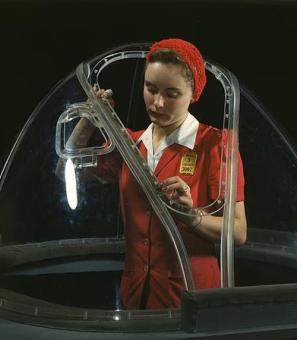Terrorism Hits Home in 1915: U.S. Capitol Bombing
Shortly before midnight on Friday, July 2, 1915, police responded to the U.S. Capitol where an explosion had just rocked the Senate wing. Fortunately they found no fatalities – a byproduct of the fact that Congress was not in session and the building was lightly staffed at night. But, there was plenty of carnage and, obviously, great concern about security.
The next evening, Washingtonians opened their Evening Star newspaper to find a peculiar letter under the headline, “Letter Received by the Star Thought to Have Bearing on the Explosion.” The diatribe began, “Unusual times and circumstances call for unusual means” and quickly moved into a critique of American businesses supplying warring European countries with armaments.
Paradoxically, the letter claimed that the attack on the Capitol was a call for peace, “Europe needs enough non-contraband material to give us prosperity. Let us not sell her EXPLOSIVES! Let each nation make her own mankilling machines. Sorry I had to use explosives. (Never again.) It is the export kind and ought to make enough noise to be heard above the voices that clamour for bloodmoney. This explosion is the exclamation point to my appeal for Peace!”[1]
The letter was signed, “R. Pearce” and included a post script: “We would, of course, not sell to the Germans either, if they could buy here.” It had been postmarked less than two hours before the bomb went off.
Beside the letter ran an account of the other big news of the day.
The morning after the Capitol explosion, banker J.P. Morgan, Jr. had been attacked in his summer home on Long Island, New York by an assailant who carried two revolvers and a briefcase packed with dynamite. Morgan suffered two flesh wounds before house servants overpowered the man and tied him up on the front lawn to await police.
When Glen Cove, New York detectives arrested him, the gunman identified himself as Cornell University German Professor Frank Holt. He told authorities that he had never intended to hurt Morgan – he just wanted to scare him. In a statement to the Justice of the Peace, Holt claimed, “My motive in coming here was to try to force Mr. Morgan to use his influence with the manufacturers of munitions in the United States and with the millionaires who are financing the war loans to have an embargo put on shipments of war munitions so as to relieve the American people of complicity in the deaths of thousands of our European brothers.”[2]
Holt continued:
“If Germany should be able to buy munitions here, we would positively refuse to sell them to her. The reason that the American people have not as yet stopped the shipments seems to be that we are getting rich out of this traffic; but do we not get enough prosperity out of non-contraband shipments, and would it not be better for us to make what money we can without causing the slaughter of thousands of Europeans?”[2]
Back in Washington, the events on Long Island were little more than a curiosity at first. Police were focused on the Capitol explosion and found themselves baffled by R. Pearce’s letter. Who was this person? And, perhaps more importantly, where was he or she? Chief Detective Robert Boardman was hearing it from his boss, Chief of Police Raymond Pullman who wanted leads and fast. Indeed, Pullman, who had taken an overnight train from Washington to New York City on the night of the attack, had called long distance TWICE at great expense demanding progress.[3]
For hours, Boardman kept reading the Pearce letter over and over but nothing clicked… until he read it side by side with Frank Holt’s statement about the assault on J.P. Morgan, Jr.
R. Pearce Letter
“Europe needs enough non-contraband material to give us prosperity.... We would, of course, not sell to the Germans either, if they could buy here.”
Frank Holt Statement
“If Germany should be able to buy munitions here, we would positively refuse to sell them to her... Do we not get enough prosperity out of non-contraband shipments[?]”
The similarities were striking. Could it be that R. Pearce and Frank Holt were the same man?!
Boardman cabled Pullman: “Ascertain from F. Holt, in custody at Glen Cove, N.Y., for shooting of J.P. Morgan, his whereabouts Thursday and Friday, as he may have placed the bomb in the Capitol here Friday night.”[3]
Initially, Holt denied any connection to the Washington bombing, claiming he was at a hotel in New York City when it had happened. When shown a copy of the R. Pearce letter he allowed, “It does look strange, doesn’t it? It seems that the man who did that thought about like I did, too, doesn’t it? It was rather odd that he used almost the same words as I did. I can’t explain it.”[4]
Unconvinced, Pullman and New York interrogators turned up the heat. (The NYPD had gotten involved in the case to explore its possible connection to other acts of terrorism in New York harbor.) Though Pullman later denied it, NYPD bomb squad head Captain Thomas Tunney suggested that “third degree methods” were employed to get Holt to talk. Glen Cove’s justice of the peace William Luyster was a little more direct: “We had to go after him good and strong before he would tell us what he knew.”[4]
Holt eventually confessed. He told investigators he had arrived in Washington around on the afternoon of Friday, July 2 and checked into a boarding house at Delaware Ave. and C St. NE. There he assembled a bomb made of dynamite and placed it in a suitcase. He walked in the main entrance of the Capitol and walked the halls for about 30 minutes without so much as a glance from a policeman, looking for a place to stash the bomb. He had originally hoped to place it in the Senate chamber but when he found the chamber locked, he settled on a spot in the Senate reception room.
After exiting the Capitol, Holt wandered the streets of Washington, waiting for the bomb to go off. (It was on a timer and scheduled to detonate late at night, so as not to injure anyone.) When he heard the blast at 11:23 pm, he hurried to Union Station and boarded the 12:10 am train to New York City. (Coincidentally, this was the same train Metropolitan Police Chief Pullman was riding.) By 9 am, Holt was in Glen Cove assaulting the nation’s foremost banker.
As strange of a tale as it was, Frank Holt’s story got even stranger after his arrest. For starters, authorities determined his name wasn’t even Frank Holt… Or R. Pearce. It was Erich Muenter. And Erich Muenter had quite a past.
Born in Germany, Muenter had once been a promising young professor at Harvard. However, in 1906 he had made headlines when it was discovered that he poisoned his wife and fled Cambridge. After going underground in Mexico for a number of years, the professor reemerged in Texas, where he adopted a new identity, married again and started re-climbing the academic ladder. Moving from school to school, he worked his way back to the Ivy League at Cornell under the name of Frank Holt.
Muenter was a committed German nationalist and – with the outbreak of World War I – got involved with Abteilung IIIB, the very-active German secret intelligence network that was conducting sabotage operations in the United States. The network was particularly successful at planting incendiary devices on ships that were transporting American-made arms to Britain and France. The bombs had crude timers, which caused them to ignite after several days when the ship was in mid-ocean, miles away from help.
While Muenter appears to have acted alone in his attacks on the Capitol and J.P. Morgan, Jr. he clearly had connections to the network and some knowledge of its larger activities. While in custody, he taunted authorities with veiled statements about Abteilung IIIB’s sabotage efforts, even “predicting” the exact date (July 7) of the next ship bombing. The SS Minnehaha did, indeed, catch fire in the Atlantic that day.
It was clear he was a man of many secrets. Unfortunately for police, those secrets would soon be buried forever. On July 6, when the guard assigned to watch over him was tending to another inmate, Muenter climbed to the top of his jail cell and dove head first into the concrete floor below. His skull was crushed and he died.
For more on Muenter and the Abteilung IIIB network, check out Howard Blum’s captivating book, Dark Invasion: 1915: Germany's Secret War and the Hunt for the First Terrorist Cell in America.
Footnotes
- ^ “Letter Received by the Star Thought to Have Bearing on the Explosion,” Evening Star, 3 July 1915: 2.
- a, b “J.P. Morgan Shot by ‘Inspired’ Man at Country Home,” Evening Star, 3 July 1915: 2.
- a, b Blum, Howard, Dark Invasion: 1915: Germany's Secret War and the Hunt for the First Terrorist Cell in America, New York: Harper Collins, 2014.
- a, b Bomb Explosion at Capitol Perpetrated by Same Man Who Shot J. Pierpont Morgan,”Sunday Star, 4 July 1915: 8.


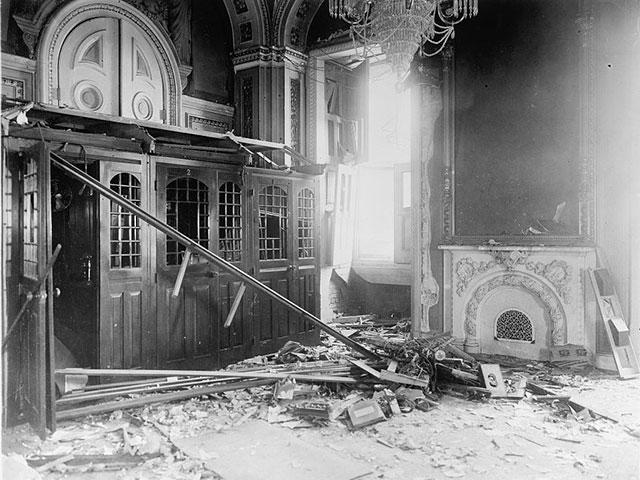
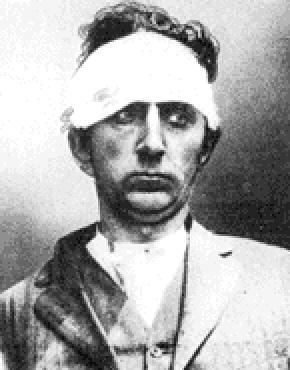
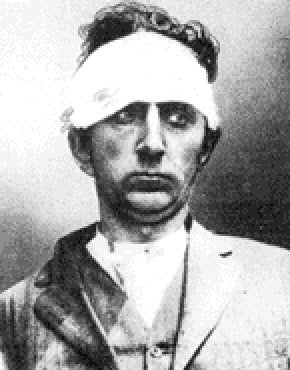
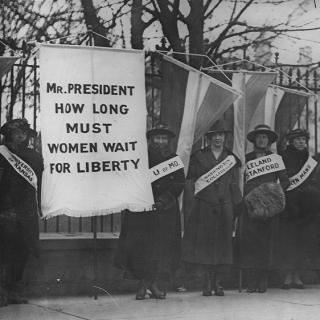
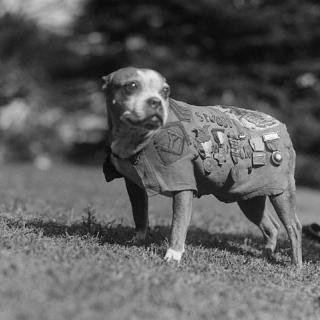
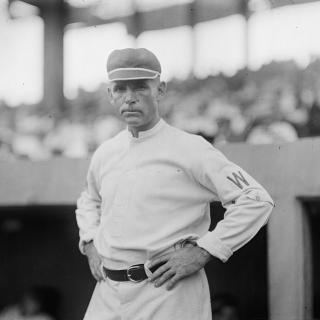
![Sketch of the mythical fuan by Pearson Scott Foresman. [Source: Wikipedia]](/sites/default/files/styles/crop_320x320/public/2023-10/Goatman_Wikipedia_Faun_2_%28PSF%29.png?h=64a074ff&itok=C9Qh-PE1)











